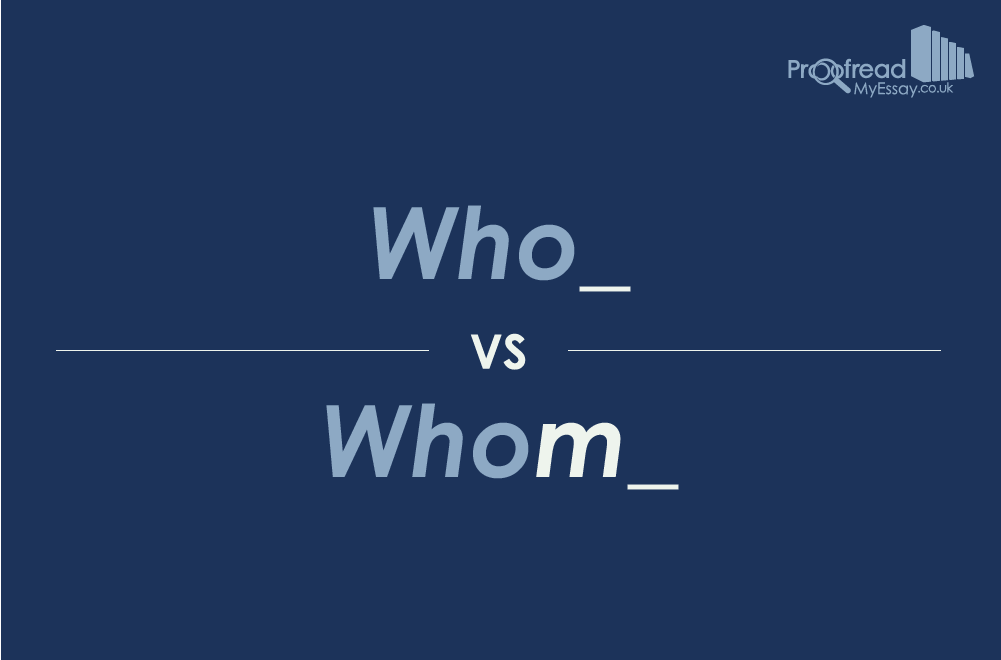The question of when to use the word ‘whom’ is such a common issue that correcting people has become comic shorthand for pedantry; however, it really isn’t as complicated as sitcom writers would have you believe.
Both ‘who’ and ‘whom’ are pronouns used to identify or enquire about a person or persons. The thing you need to know when using them is the distinction between the ‘subject’ and ‘object’ of a sentence.
Who (Subject)
‘Who’ is a subject pronoun, meaning it typically refers to the active thing or person in the sentence:
The man who sold the world to Tony was called David.
Here, the word ‘who’ is correct because it refers to the subject of the sentence (‘the man’). It could also be used in a question, to which the answer would involve identifying the subject:
Who sold the world to Tony? David did.
Whom (Object)
‘Whom’ is an object pronoun and usually applies to the thing or person being acted upon in a sentence:
The person to whom David sold the world is called Tony.
The word ‘whom’ is used here because it refers to the recipient of the action, placing ‘Tony’ in the role of object. As above, this could be phrased as a question:
Find this useful?
Subscribe to our newsletter and get writing tips from our editors straight to your inbox.
To whom did David sell the world? He sold the world to Tony.
Who or Whom?
The difference between ‘who’ and ‘whom’ is often overlooked, but in formal or academic writing it’s still important to aim for perfection. Remember:
Who = Subject
Whom = Object
Essentially, ‘who’ is used if asking about or describing someone responsible for an action (‘the man who sold the world’) and ‘whom’ is used if enquiring about or describing the recipient of an action (‘the man to whom the world was sold’).
One good tip is to check whether a ‘who/whom’ question can be answered with ‘he’ or ‘him’: ‘him’ and ‘whom’ are both object words that end in ‘m’, so questions which can be answered with ‘him’ should be framed with ‘whom’.
For example, the question ‘Who tripped you?’ would be answered with ‘He tripped me’ since the tripper is the subject of the sentence.
On the other hand, the question ‘Whom did you trip?’ would be answered ‘I tripped him’ because ‘whom’ refers to the object of the sentence; responding ‘I tripped he’ would not make sense.
